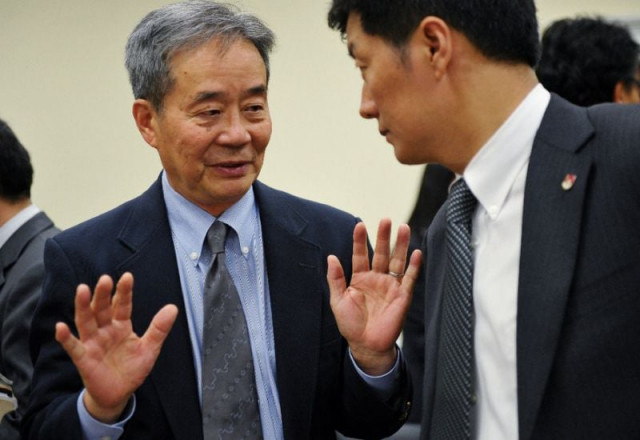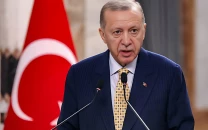Chinese rights activist Harry Wu dies at 79
He is survived by his son Harrison and former wife Ching Lee

PHOTO: REUTERS
Wu died Tuesday morning while vacationing in Honduras with friends, the Laogai Research Foundation said in a statement.
Missing persons case: Rights activist requests SC to wrap up commission
He founded the organization in 1992 to analyze and raise awareness about China's "laogai" or forced labor detention centers, which began under Chinese revolutionary leader Mao Zedong.
While studying at university in China, Wu was sentenced to 19 years in prison after speaking out against the Soviet Union, an ally of China.
He claimed to have spent time in 12 different labor camps, surviving a system thought to have claimed the lives of millions, including many punished for political crimes.
Rights group calls for action against authorities over Thar drought
He was released in 1979 and in 1985 came to the United States, where he became a citizen and worked to raise awareness about the laogai.
Through his foundation, he played a prominent role in pushing the US government to address human rights issues in China, frequently speaking in front of Congressional committees and meeting with prominent American politicians, including former President George W Bush.
Wu was arrested in China in 1995 on charges of espionage in retaliation for his human rights work.
The incident nearly derailed a trip by then US first lady Hillary Clinton to China to speak at a UN conference on women.
Beijing ultimately deported Wu after first sentencing him to 15 years in prison during a speedy trial a week before the meeting.
Human rights added in Sindh textbooks
Wu, an author of multiple books, also founded the Laogai Museum in Washington, devoted to telling the story of those subjected to the system.
China has carried out some penal reforms, but Wu's foundation says that "the fundamental structure of the laogai system remains intact".
In 1994, he became the first recipient of the Martin Ennals Award -- known as the Nobel Prize for human rights, and continued to campaign against other human rights abuses, including China's forced organ harvesting and population control measures.
He is survived by his son Harrison and former wife Ching Lee, according to the Washington-based Laogai Research Foundation.




1725099588-0/BeFunky-(41)1725099588-0-208x130.webp)














COMMENTS
Comments are moderated and generally will be posted if they are on-topic and not abusive.
For more information, please see our Comments FAQ